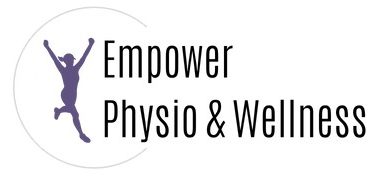Being an integrative health coach, I’ve noticed my clients’ confusion when it comes to whether or not they should be snacking or fasting. This is a great question because we are often bombarded with data supporting both sides. Part of my philosophy and belief is that whatever it is that we decide to follow, we must do it for the overall health and longevity of our system. We mustn’t do it for physical appearance alone. When we have a healthy inside, we have a healthy outside. Not vice versa. So with that in mind, let’s dive into these two philosophies.
Snacking (Eat 6 Small Meals Throughout the Day)
Eating every few hours is a philosophy most of us have heard. The concept behind eating several small meals throughout the day is that it helps maintain blood glucose levels and keep us more satisfied throughout the day. This philosophy is generally based on a total number of calories and managing portion sizes. Here are a few potential benefits from snacking and eating meals every few hours throughout the day.
- A decrease in hunger and an increase in fullness, which can potentially prevent overeating. In fact, when people become very hungry, the risk increases that they will choose unhealthy high-calorie foods, such as pizza and soda. This can lead to eating too much at one sitting.
- More opportunities to consume healthy foods such as fruit, vegetables, and whole grains.
- Eating small, balanced meals every 3 hours boosts your body’s fat-burning potential. If you don’t eat often enough, your body goes into “starvation protection” mode, conserving calories, storing fat, and burning muscle (not fat) for energy.
Fasting (Eat Within a Given Window of Time)
First and foremost, please note that there is a difference between fasting for health benefits and starving yourself. While one may be extremely beneficial, one is extremely detrimental. The body is programmed to allow our digestive organs to take a much-needed rest— whether it be on a daily, weekly, or monthly basis. In the same way going without adequate sleep is stressful to our bodies, so is eating constantly.
Think of what happens when you get sick. Say you have a fever. Your body often forces you to take a break from eating, which allows your body’s energy to be directed more toward “cleaning house.” This is your body’s way of strengthening your immune system activity rather than wasting energy on digestion.
It is important that you give your body enough nutrients to allow for proper hormone formation and cellular repair and recovery, but on the other hand, you need to give your digestive system an occasional break to allow for the many health and life-extending benefits of calorie restriction.
Recommendations if you are a beginner and are looking to incorporate fasting:
1. Twelve to sixteen hour daily fast. Most practical and effective fasting strategy. For example, you eat dinner at 8pm and then not eat again until breakfast or an early lunch sometime between 8am and noon the following day.
2. Skip the fast on high-volume days. On high volume days, such as training for a marathon, that may involve several hours of exercise, don’t fast. Just eat when you are hungry. The risks of calorie restriction outweigh the benefits when a lot of exercise is part of the equation.
3. Don’t do hard or long workouts fasted. An easy morning swim, bike, or run would be ok after an overnight fast. So is a ten to sixty-minute, hard interval session, assuming you listen to your body and you’re able to maintain your goal intensity, recover well, and eat a big breakfast afterward. However, any workout that is difficult and longer than sixty minutes or any workout that is easy to moderate lasting longer than two hours should not be done in an overnight-fasted state. This is a quick path to overtraining and unhealthy levels of self-cannibalization.*
4. Some foods are OK to eat when fasting. There are several foods that allow your body to maintain low levels of blood sugar and insulin but allow for substantial energy levels and enhanced fatty acid utilization during a fast. By consuming these foods, you can decrease the hormonal or metabolic stress you may experience when combining fasting with intense physical activity. These foods include MCT or coconut oil, essential amino acids or branched-chain amino acids (BCAAs), coffee (including bulletproof coffee), green tea, spirulina, chlorella, and greens powders or supplements.
5. Do a twenty-four-hour fast occasionally. Every month or two, choose one day to take a break from exercising and clean out your body to allow for cellular autophagy (eliminating your body’s junk). This periodic day of complete rest for your muscles, adrenals, and digestive system can be incredibly therapeutic.
6. Be careful if you are female. Some women find that fasting causes sleepiness, anxiety, and irregular periods, among other symptoms of hormone dysregulation. For those who may experience this, a twenty-four-hour fast can be more effective than daily intermittent fasting. If you are female and you love the idea of fasting, consider eating some of the foods listed in recommendation number 4.
Additional Benefits of Fasting
- It is an excellent tool for weight loss
- Promotes secretion of human growth hormone
- Helps athletes
- Helps normalize insulin sensitiity
- Normalizes Grehlin levels
- Lowers triglyceride levels
- May slow down the aging process
- Helps regulate or re-regulate the migrating motor complex (MMC)
- The MMC is a pattern of electromechanical activity observed in gastrointestinal smooth muscle during the periods between meals. It is thought to serve a “housekeeping” role and sweep residual undigested material through the digestive tube.
Types of Fasting
- Intermittent Fasting – cyclic fasting range from 14-18 hours
- Time-restricted eating – abstain from food anywhere from 12-16 hours
- 16/8 fasting – like time-restricted eating, fasting for 16 hours a day and then eat the other 8
- Alternate day fasting – severely restricting the number of calories you eat during fasting days (about 25% of your normal intake), then eating until your stomach’s content during non-fasting days
- The 5:2 diet – eat normally 5 days a week, then eat only 500-600 calories on each of the other 2 days
- The Warrior Diet – stick to fruits and veggies during the day, then eat a well-rounded, larger meal during the evenings
- The Daniel Fast – based of Daniel’s experiences in the Bible’s Book of Daniel, this 21-day fast features vegetables, fruits, and other healthy whole foods prominently, white meat, dairy, grains (unless they’re sprouted ancient grains) and drinks like coffee, juice, and alcohol are avoided.
The health benefits of fasting are very appealing, but fasting isn’t always for everyone. People who suffer from hypoglycemia and diabetics may want to avoid fasting, up until blood glucose and insulin levels have been normalized. Pregnant and breastfeeding women should absolutely not fast, as it can have negative effects on the baby. In addition, if you are certain medications or have other health conditions, it’s best to consult your doctor about introducing fasting into your lifestyle. However, for most of the population, intermittent fasting can be a really helpful tool in managing your weight and health.
Want to learn more about Jess? Check out her website here!
Resources and References
*Beyond Training by Ben Greenfield
*7 Benefits of Fasting and the Best Types to Try for Better Health by Dr. Josh Axe
*The 3-hour Diet by Marianne Wait (WebMD)



